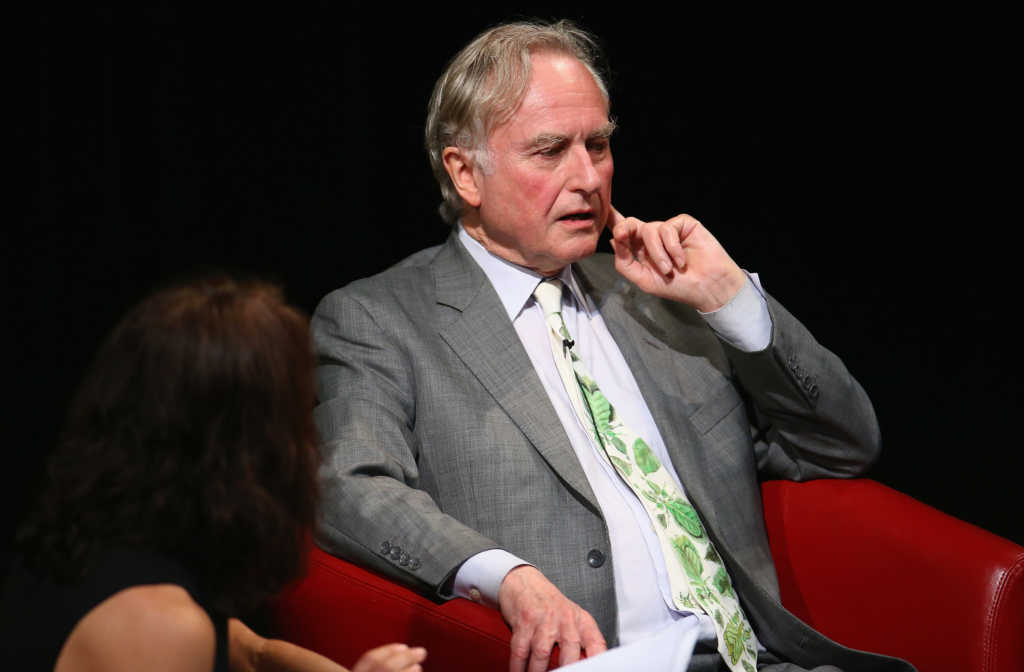“After four weeks, not only did they fail to produce a single word of the English language, they got bored and started defecating on the keyboards.”
That was the end result of the infamous test of the ‘Infinite Monkey Theorem.’ The theory, a favorite of atheist author Richard Dawkins, attempts to explain how an incredibly fine-tuned universe such as ours could have spontaneously appeared from nothing through an unguided process. Dawkins has referenced the theory in books and on stage.
You’ll end up going down quite the rabbit hole if you want a further explanation on the theory— if you’d like to find out more, go here. But basically, it says an endless supply of monkeys (apparently representing the universe) given unlimited supplies of ink, time and paper, can eventually come up with words, sentences and even a work of Shakespeare.
The ‘monkey theory’ has taken various shapes, forms, and sizes over the years – but at least one Christian scientist is frustrated that some are allegedly still employing the debunked theory.
So, she attempted to put the final nail in the coffin in a series of tweets dedicated to putting the issue to rest once and for all.
“Why materialists need to stop using the monkeys on typewriters analogy and Christians need to stop worrying,” began Sarah Salviander, an astrophysicist who is also a Christian.
Dawkins is entirely perplexed that Christians still subscribe to the fine-tuning argument. He would prefer to just “dismiss” the fine-tuning argument altogether but says he can’t help but “marvel” at the sheer number of people who “can’t see the problem and seem genuinely satisfied” by the Divine “Knob-Twiddler” argument.
His best guess? “Amazing blindness” that has caused their consciousness to not be raised to his level — probably thanks to natural selection of course.
“Well, let’s engage in some consciousness-raising of our own about probabilities,” Salviander says as she prepares to unleash a world of mathematical hurt on Dawkins’ presuppositions.
The monkeys-on-typewriters analogy is often used to explain how, given enough time and space, random processes can lead to extremely improbable events. But how much time and space are we talking about in the observable universe? Turns out, it’s surprisingly little. Let’s look at the probability of a large but finite number of monkeys randomly typing on keyboards happening to produce something intelligible. Say, the famous first line of Charles Dickens’ classic, A Tale of Two Cities: “It was the best of times, it was the worst of times.”
The theory, of course, attempts to illustrate how an unguided universe can eventually, by necessity, come up with something intelligible over long periods of time. It has to in the materialist worldview. If it doesn’t, someone has some ‘splaining to do!
After going through several calculations, she arrives here:
Given that the universe is 13.8 billion years old, it’d take a billion monkeys typing continuously for ~billion trillion trillion trillion lifetimes of the universe before we could expect to get just the first line of Dickens’ novel.
Yeah, not gonna happen. And that’s just for one sentence of one novel!
So, what if we spread this experiment out over every possible planet in the observable universe, an estimated 1e21 planets. That’s not much help. It’d still take a trillion trillion lifetimes of the universe to produce just that one sentence.And that’s assuming you could get the monkeys to stay on task for any period of time, which turns out to be unreasonable. Someone actually tried this experiment with six monkeys and a keyboard, and after four weeks…
…not only did the monkeys fail to produce a single word of the English language, they got bored and started defecating on the keyboards. Perhaps an apt metaphor for the alleged blind, unguided processes that give rise to life in the universe.
That, as the children say today, is what getting ‘rekt’ looks like. So what’s the implication for the materialist/atheist worldview?
Well, for starters, some people think billions of years is the escape hatch for atheists to give them the ‘time’ needed for evolution. Turns out, a few billion years isn’t even remotely close to sufficient. You’d need trillions of trillions of years to make the numbers work out in their favor. Time is still not on their side, according to Salviander.
In conclusion, Salviander argues that atheists have been backed into a corner:
They’ve been forced by the big bang to retreat to the only other form of eternity they can think of, which is the infinite multiverse. We’re left with either wild unscientific speculation about unknown mechanisms generating infinite universes – at which point, why not just put God back on the table? – or accepting the possibility that whatever is shaping the development of our universe isn’t unguided. Physicist and theologian Gerald Schroeder comments that it was this very discussion that finally pushed the late atheist Antony Flew away from atheism and toward theism. He didn’t have enough faith to be a materialist, and neither do I.
If scientists were really about searching for truth, they would consider all options on the table — but the reality is, they don’t even consider intelligent design as a possibility.
Keep praying for more faithful scientists to step forward and speak out!



